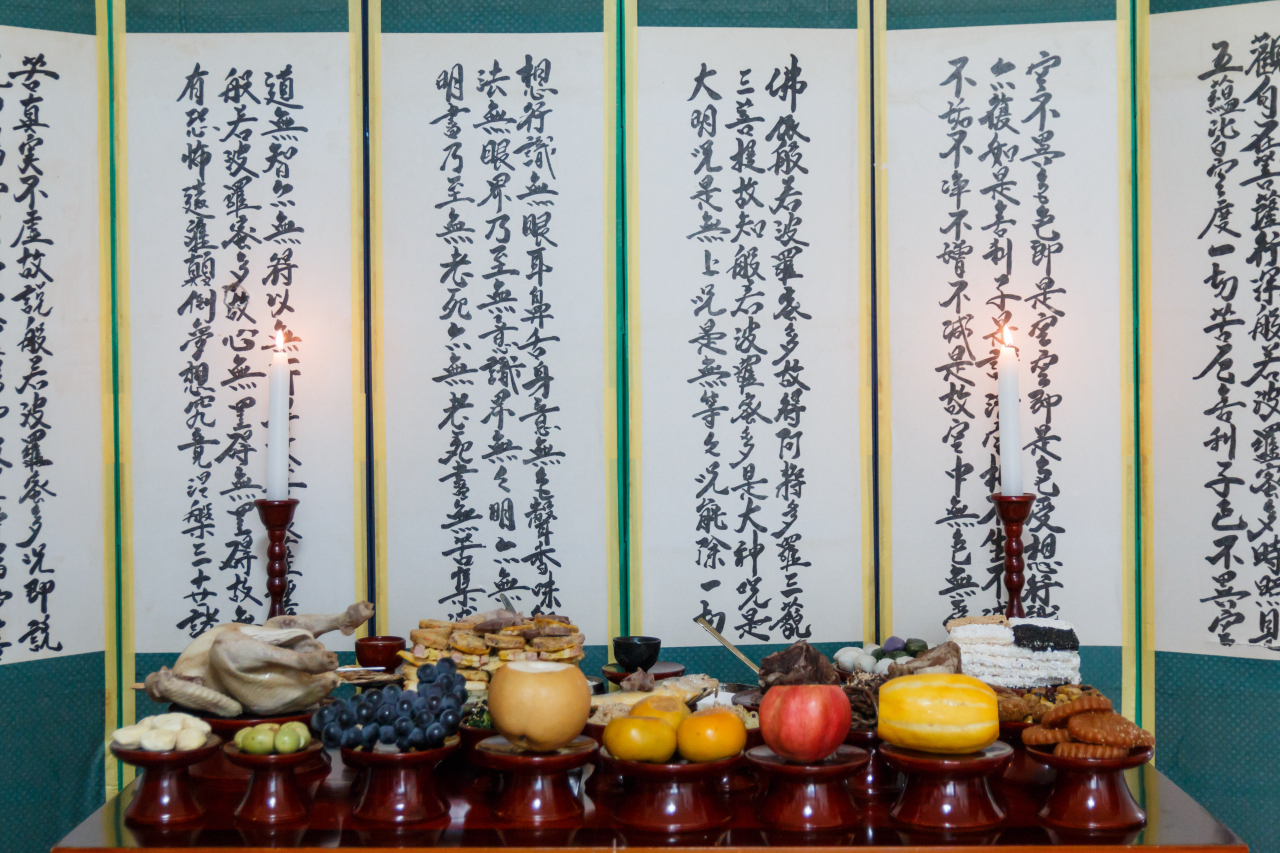Over half of Koreans say they won't continue jesa: survey
By Yoon Min-sikPublished : Oct. 30, 2023 - 15:30

More than half of adults of South Korean nationality do not plan to continue holding the “jesa,” the traditional ritual held in honor of one’s ancestors, a recent survey showed.
According to the Sung Kyun Kwan, a traditional Confucian educational institution, its survey of 1,500 Korean men and women aged 20 or older across the country found that while 62.2 percent of the respondents still perform the jesa ritual, 55.9 percent are considering discontinuing it in the future.
The jesa is conventionally held during major traditional holidays like Chuseok and Seollal, although tradition calls for it to be held more frequently, such as for one's parents and paternal grandparents, for the founder of one's family name, as well as on other occasions.
Of the 55.9 percent who said they wish to discontinue the tradition, 41.2 percent of the respondents said they want to simplify the jesa procedure or replace it entirely with simple family meetings. Another 27.8 percent think the jesa was an unnecessary relic of the past, while 13.7 percent oppose it for religious reasons.
Among those who say the jesa is still necessary, 42.4 percent said it is needed to honor one's ancestors, 23.4 percent said it is a good opportunity to meet other members of the family and 15.9 percent said it is to follow in their parents' footsteps. Ten percent deemed it worth keeping for tradition's sake.
The excessive costs of holding the jesa -- particularly related to the preparation of food -- are often cited as a reason more people are turning away from the traditional ritual.
"Jujagarye," a 12th-century book on Confucian rituals written by Chinese scholar Zhu Xi and introduced into Korea during the Goryeo era, states that 17 different dishes, including rice, noodles, meat, fish, rice cakes, fruit and vegetables, should be placed on the jesa table.
The jesa standards have changed since then, but the difficulties of preparing a table full of expensive food have been a common denominator for criticisms of the ritual throughout the years.
Another issue with the jesa is the convention in which women -- daughters and those married into men's families -- are expected to do most, if not all, of the preparations for the patrilineal ritual, leading to stress and disputes within families.
Asked about how the jesa should change in the Sung Kyun Kwan survey, 25 percent of the respondents said there should be fewer dishes required for the jesa table. This response was followed by simplification of the procedure (19.9 percent), men and women sharing the workload equally (17.7 percent), while 17.2 percent of the respondents said a completely new form of jesa combining tradition with today's tastes is necessary.
The Sung Kyun Kwan is working on formulating its recommended new standard jesa procedure to reflect the demands of the contemporary public, for announcement on Nov. 2.



















![[Today’s K-pop] Treasure to publish magazine for debut anniversary](http://res.heraldm.com/phpwas/restmb_idxmake.php?idx=642&simg=/content/image/2024/07/26/20240726050551_0.jpg&u=)